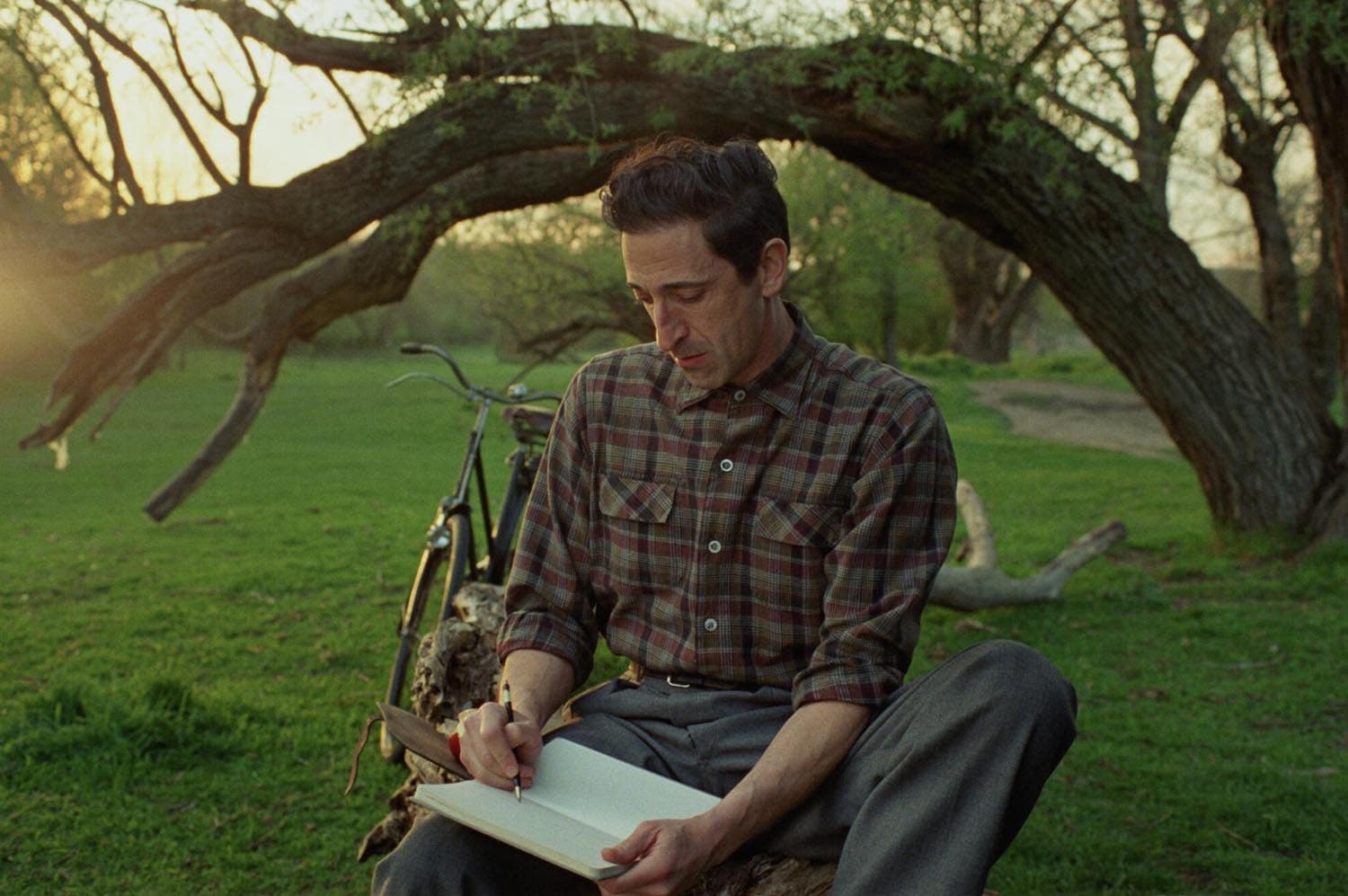We admit to kicking this category down the road to see if the The Brutalist’s A.I. controversy would make any measurable ripples in this race—that is, outside the social media bubble of extremely online non-voters. And the plan was to keep things simple, if Adrien Brody followed his BAFTA coronation with a SAG victory, by sparing readers any unnecessary hemming and hawing and offering at the end of this article a reprint of the essay I wrote about Brody’s performance for this year’s New York Film Critics Circle gala.
But after Timothée Chalamet’s upset victory at the SAGs for his performance as a young Bob Dylan in A Complete Unknown, it’s no longer possible to call this one a done deal. And suddenly I’m forced to play the part of John Nash in A Beautiful Mind, like I did last year when trying to decide if Lily Gladstone or Emma Stone would win best actress.
How many SAG-AFTRA voting members are there? How do those numbers compare to the BAFTA and AMPAS memberships? Do the Academy’s younger, more international voters gravitate more toward Brody or Chalamet? How does one even begin to figure BAFTA winner Austin Butler’s loss, and for a biopic no less, to SAG winner Branden Fraser at the Oscars into all of this? And, perhaps most importantly, to what degree did Brody benefit from his big victories at BAFTA and the CCA occurring during the Oscar voting window?
Maybe the wind is blowing in Chalamet’s direction, or maybe his SAG win is as easily explained as A Complete Unknown being, like Conclave, a much more SAG-friendly film than either The Brutalist or Anora. Either way, we’re playing things safe by predicting Brody, who’s nearly run the table up until the SAGs, for his staggering performance in Brady Corbet’s epic. And, what the heck, here’s my essay about his performance:
The Brutalist begins within the dark bowels of a ship arriving at Ellis Island, but you could be excused for thinking that László Tóth is descending into the hell of the Holocaust from which he’s actually escaped. He will never be more ecstatic across the film’s three-plus hours than he is upon catching a glimpse of Lady Liberty, and Adrien Brody somehow at once conveys the exhilaration of a man delivered from annihilation and the sense that, no matter how much he may try, he will never be able to shake off his predisposition toward victimhood.
Throughout Brady Corbet’s film, which embraces the sweep of tragedy with a sense of irony redolent of the works of William Somerset Maugham, László will essentially trick his great victimizer into financing a monument to a concentration camp that’s disguised as a Christian symbol—an inventive occupation born by necessity. It’s an act of hubris that Brody communicates with a physicality that’s harrowing and poignant for how profoundly it’s born of desperation.
The Brutalist’s mythic resonance is grounded in a man’s primal sense of dislocation. As the film tends to such big themes as creation as salvation, co-opting as response to a supreme violation, Brody brings its granular details to life with a soulful gravitas. László’s nose is repeatedly brought up, and in the man’s self-consciousness about its “ugliness”—the viewer never learns if he actually broke it on his way to Buchenwald—Brody subtly yet movingly taps into anxieties about the differences that make individuals like his character susceptible to abuse.
What happened to László in Buchenwald? He will never say, but Brody, in everything from the distracted repose of his eyes to a wayward tear, makes plain the totality of what László endured. He intuitively understands that László is forever perched on a razor’s edge between hope and despair—a natural condition for so many of the huddled masses of our tortured world who’ve found themselves in front of America’s “golden door.” Which is to say that, in addition to it being a marvel of endurance and vulnerability, Brody’s performance is a triumph of empathy.
Will Win: Adrien Brody, The Brutalist
Could Win: Timothée Chalamet, A Complete Unknown
Should Win: Adrien Brody, The Brutalist
Since 2001, we've brought you uncompromising, candid takes on the world of film, music, television, video games, theater, and more. Independently owned and operated publications like Slant have been hit hard in recent years, but we’re committed to keeping our content free and accessible—meaning no paywalls or fees.
If you like what we do, please consider subscribing to our Patreon or making a donation.






